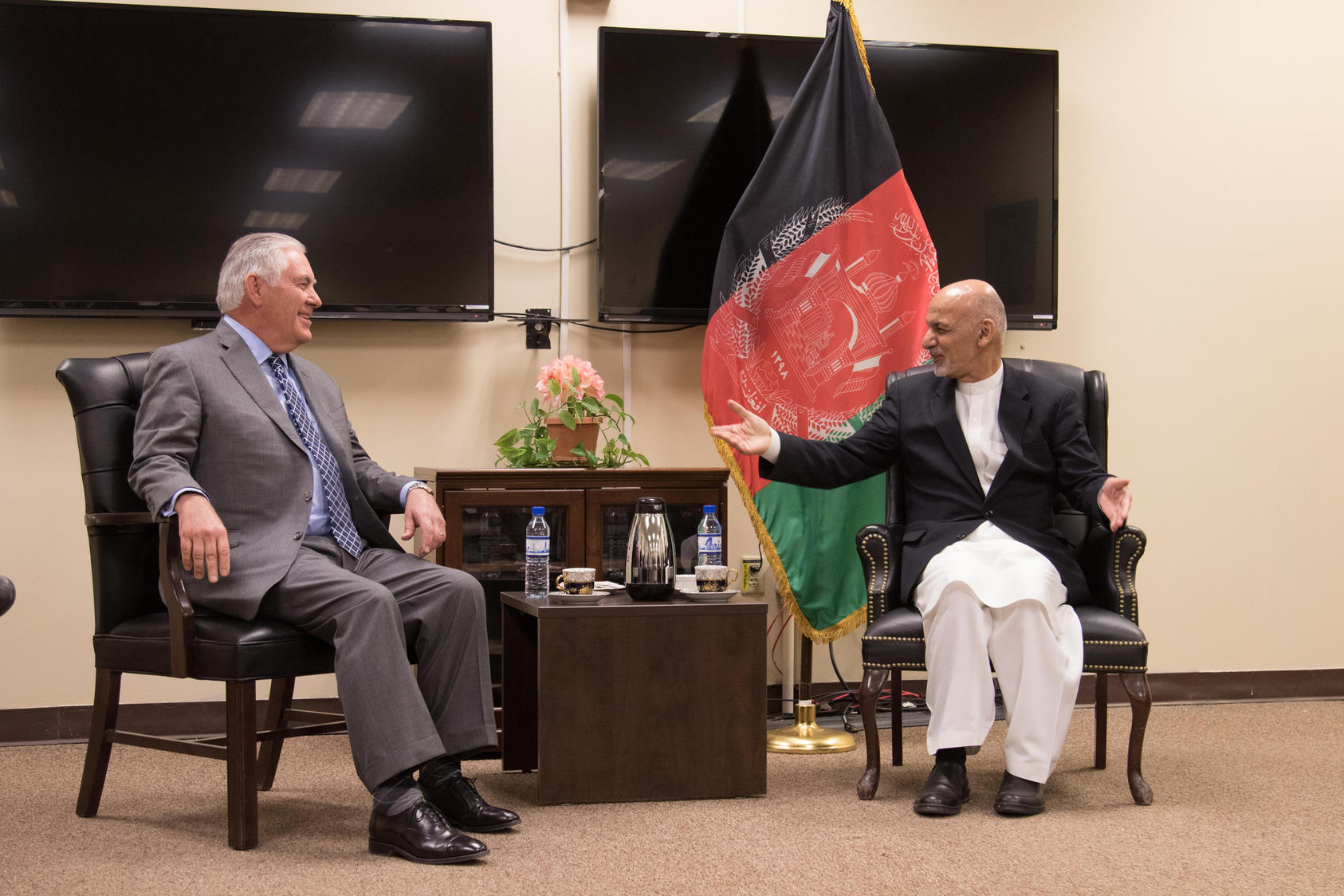Secretary of State Rex Tillerson, in brief stops in Kabul and Islamabad during a trip through the Middle East and Asia, sought to further emphasize the administration’s commitment to the war in Afghanistan and to press Pakistan for its support to the fight, says Jay Wise, a Jennings Randolph Senior Fellow on Asia at USIP. Wise analyzes the visits this week and the prospects for the broader U.S. strategy for South Asia.

What was Tillerson trying to accomplish in Kabul and Islamabad?
In Kabul, Tillerson was seeking to reaffirm the U.S. commitment to the war in Afghanistan, especially in light of recent Taliban attacks throughout Afghanistan. In Islamabad, Tillerson sought to capitalize on the positive action represented by the safe return of Caitlin Coleman, her husband and their children. Tillerson was following up on talks started by a senior U.S. government delegation that traveled to Pakistan two weeks ago. The idea is to detail the U.S. strategy for South Asia and especially the war in Afghanistan, what the U.S. is asking of Pakistan in that regard and how Pakistan might benefit.
What does the U.S. want from Pakistan, and vice versa?
As Tillerson suggested in his remarks Monday after the Afghanistan stop, the string of attacks against Afghan security units since mid-October heightens U.S. concerns that Taliban and Haqqani Network commanders are orchestrating violence across the border from havens inside Pakistan. Although positive statements are likely from both sides after the meeting, I expect that Tillerson re-emphasized that the U.S. sees this as a fundamental problem, not just an irritant in the relationship. He likely would have outlined steps the U.S. would like Pakistan to take against sanctuaries and the leaders who use them.
Pakistani leaders will seek to follow up on President Trump’s allusion to an eventual political settlement of the war. Tillerson himself underscored that in an aside to the Taliban during his speech on the U.S.-India relationship last week: “We’ll be here as long as it takes for you to change your mind and decide you want to engage with the Afghan Government in a reconciliation process and develop a form of government that does suit the needs of the culture of Afghanistan.”
Is Kabul ready for such a reconciliation process, and how would Pakistan—and other countries—be involved?
These issues won’t be settled in a single visit. But it will be hard for the U.S. and Pakistan to sustain a productive bilateral relationship without moving closer to a mutual understanding on them. Another question that Pakistani leaders will be asking, especially in light of Trump’s call for more Indian economic involvement in Afghanistan, is what would be the size, scope and type of Indian involvement in any future Afghanistan? Tillerson’s next stop after Islamabad was New Delhi.
What about the rest of the broad range of issues in the U.S.-Pakistan relationship?
Tillerson likely would have discussed nuclear and nonproliferation issues, border tension between India and Pakistan and the trajectory of Lashkar-e-Taiba and other terrorist groups operating from Pakistani soil.
It’s also striking that the State Department’s announcement of the trip highlighted the potential for expanding economic ties between the U.S. and Pakistan. Greater economic growth can help secure some of the domestic gains Pakistan has made in the past five years—and build constituencies for more reform and more regional and international economic integration.



